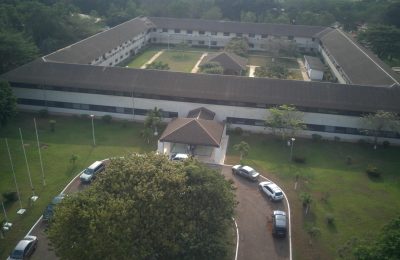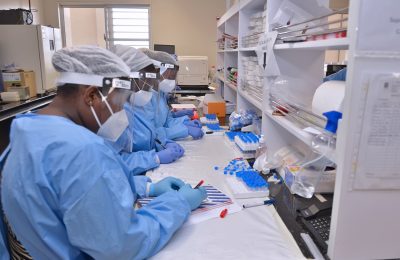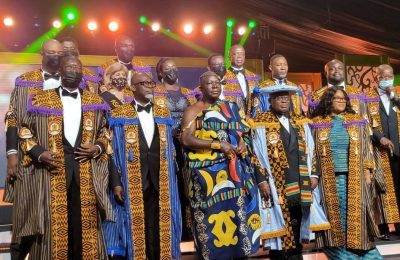Dr. Helena Lamptey is Research Fellow in the Immunology Department of the Noguchi Memorial Institute for Medical Research. Her research interest is in Immune mechanisms and host receptor polymorphisms involved in the risk of viral and infectious diseases.
This fellowship provides mentored-research opportunity for early career scientists to acquire new skills from well-equipped laboratories in reputable host institutions to enhance their career development.
Dr. Helena Lamptey is hosted by the Laboratory of Experimental Virology, Amsterdam University Medical Centre, through collaborations with Prof. Ben Berkhout’s laboratory, under the mentorship of Dr. Alexander Pasternak. As part of her fellowship, she will be trained in laboratory techniques such as droplet PCR, cell culture, virus transfection and infection assays, fluorescent activated cell sorting (FACS), Sanger and next generation sequencing. She will also acquire knowledge in bioinformatics tools for NGS analysis.
The fellowship will help build capacity and strengthen her competence in the field of HIV immunology, as well as enhance her career development into an independent investigator in HIV translational research.
During her fellowship, she will use her newly acquired skills to generate preliminary data on the proposed study below.
Title: The Role of Fc gamma Receptor (FcγR) gene polymorphisms in HIV infection progression and treatment outcomes in Ghanaian Adults.
Background: During HIV infection the host immune system elicits antibodies to control the virus. Depending on receptor type, Fc Gamma Receptors (FcγR) can regulate immunity by causing cell activation or inhibition in response to infections. There are differences in HIV infection progression and treatment outcomes among different patients. One of the factors hypothesized to be the cause of these differences is FCGR polymorphisms. Genetic variations that occur in FCGR genes such as Copy Number Variations (CNV) and Single Nucleotide Polymorphisms (SNPs) have been shown to affect Fc-mediated effector functions. These variations could modify FcR expression and IgG isotype binding, which would affect HIV infection risk and disease progression. Although the burden of HIV in Africa is high, data is lacking on the effect of FCGR polymorphisms on HIV disease progression and antiretroviral therapy (ART) response in African populations. Therefore, it is important to determine the impact of host FCGR polymorphisms on HIV infection progression and ART response in the Ghanaian population.
Aim:
- To genotype FcγRIIa, FcγRIIb, FcγRIIc, FcγRIIIa and FcγRIIIb SNPs and copy number variants associated with HIV infection and treatment outcomes.
- To measure the reservoir size of the patients (total HIV DNA, cell associated RNA).
- To evaluate virological and immunological biomarkers of the HIV-1 latent reservoir.
Expected Outcomes: The potential contributions of FcγR polymorphisms and copy number variants in HIV-1 infection and treatment outcomes will be determined. Data from the multiple time point sampling is expected to provide more insight into how these polymorphisms will affect disease progression, reservoir size and ART outcomes in HIV infected individuals. Furthermore, it will provide baseline data on the distribution of different FCGR gene polymorphisms, that would be crucial for potential HIV vaccine trials in Ghana since some candidate vaccines appear to be influenced by these.
Funded by EDCTP-AREF preparatory fellowship TMA2018PF-2535










